"We Volunteered and Renovated 40 Homes for the Elderly, and We Just Got Addicted to It"
When Rotem Lelush and his friends were left jobless during the COVID-19 pandemic, they took on the mission to renovate homes of elderly and Holocaust survivors. Since then, they've managed to renovate 40 homes and enlist dozens of additional volunteers. Read and be inspired.
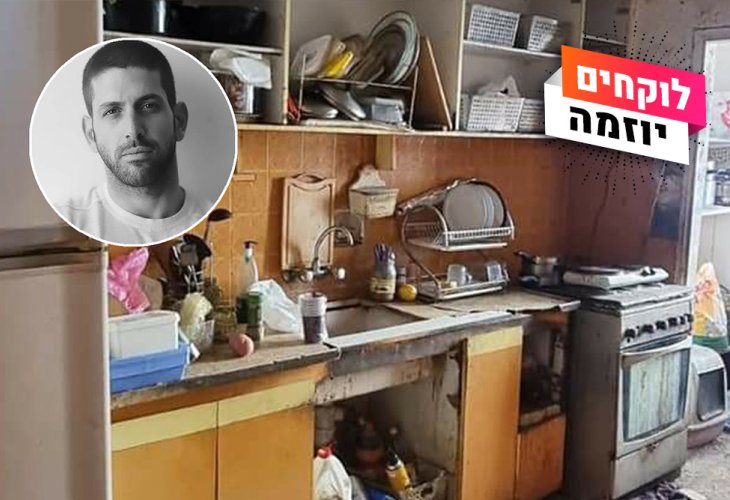 (In the circle: Rotem Lelush)
(In the circle: Rotem Lelush)Rotem Lelush is a Tel Aviv-based advertising professional. During the day, he works in an office and hops from meeting to meeting, but in the afternoons and evenings, you'll find him lugging paint cans and brushes, moving furniture, and renovating apartments. All of this, completely as a volunteer, without any pay.
And he's not alone. Along with him, dozens of volunteers are also working out of a strong sense of mission. When we asked to speak with Lelush, he almost couldn't find the time. He says that these days they're working on renovating the apartment of a Holocaust survivor living alone. "She didn't even have a washing machine," he says painfully. "She washed by hand or asked neighbors for help. And this isn't the first case where we've encountered unacceptable poverty and destitution. We feel it's a true privilege to help in such cases."
"I Cried Like a Child"
This initiative, which today involves dozens of volunteers, started during the second wave of COVID-19. "I remember the days when we sat idle at home," Lelush recalls. "Those were lockdown days, and since I'm self-employed, I faced a situation where clients disappeared and there was hardly any work. I saw many friends and acquaintances around me with a lot of free time, and the option was either to sink into depression or do something beneficial."
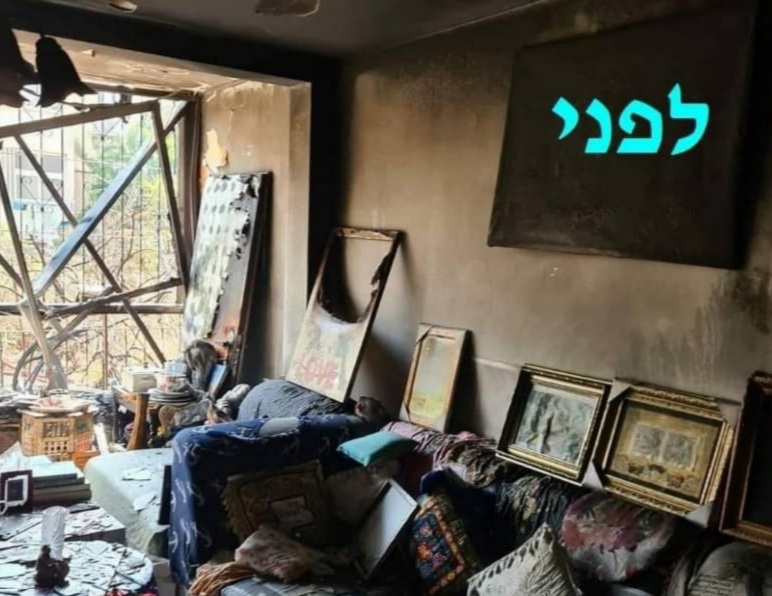

Then, one day, Lelush saw a Facebook video of an elderly woman's house flooded with water, but due to COVID-19 restrictions, no one came to address it. The video received many reactions, and many people expressed their pain over the situation.
"After two hours, when I checked Facebook again, I found that following the video's distribution, volunteers and good people had come, and not only fixed the floods but also renovated her entire house. I remember lifting my eyes from the computer screen and starting to cry like a small child. It moved me so much to see how, in a period when everyone was so focused on themselves, some chose to focus on others. It was clear to me at that point that I wanted to be part of this kind of help. I talked to some friends, and together we decided to engage in voluntary house renovations for Holocaust survivors and the elderly living in unfit living conditions."
Lelush emphasizes that he himself didn't come from the field of renovations, but the people he recruited for the project include interior designers and others who understand the field. "We decided that each one would bring his skills and connections, and together we'd move the project forward," he explains. "We called ourselves 'Renovation Squad,' and that's how we present ourselves when we come to the houses."
Good People Along the Way
Finding the first apartment wasn't hard. "I reached out to friends in the media, and they directed me to an elderly person living in a very neglected apartment and in immediate need of help. We started renovating his apartment, and everything snowballed from there. With every apartment we renovated, more volunteers joined us, and even large companies from all over the country joined as well.
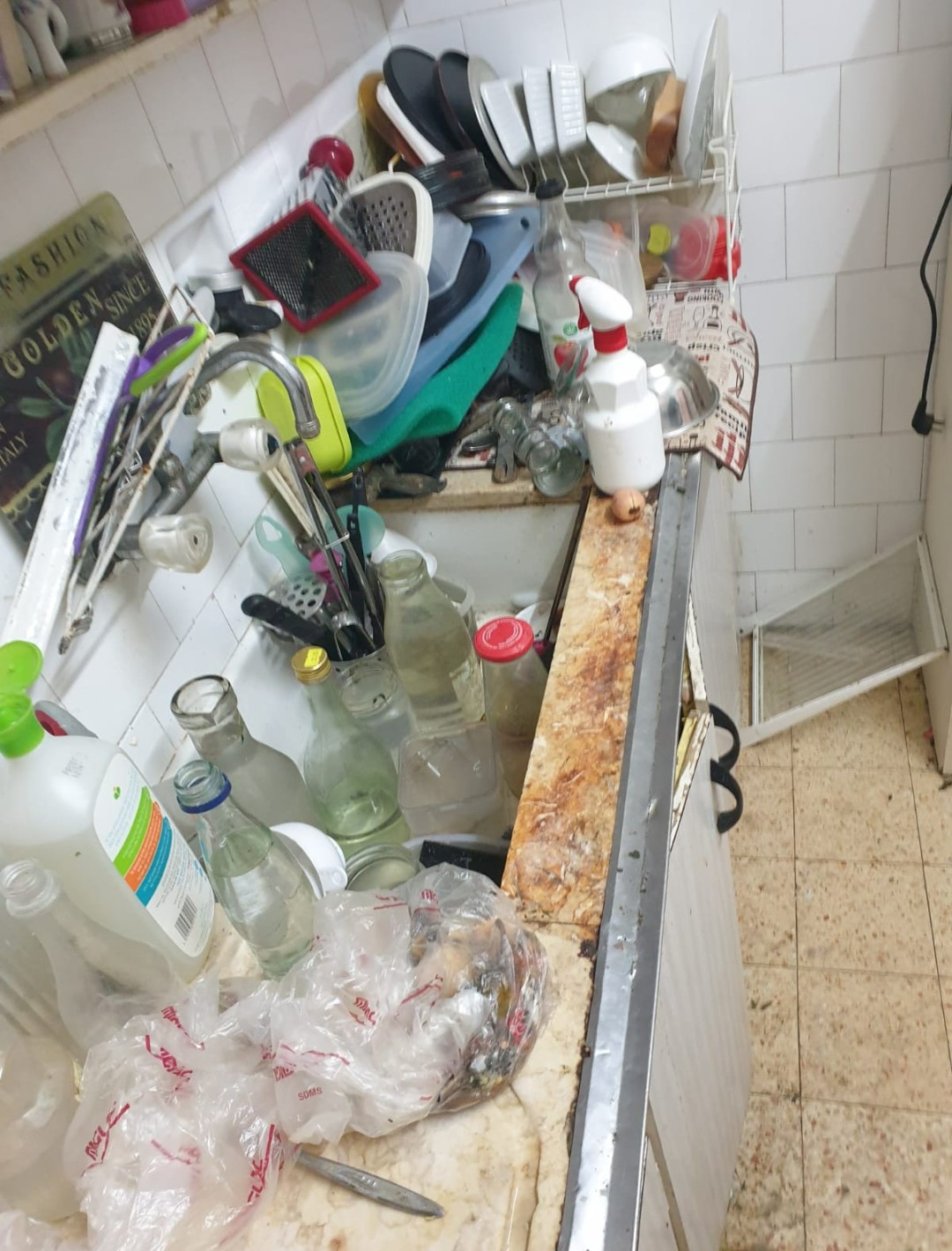
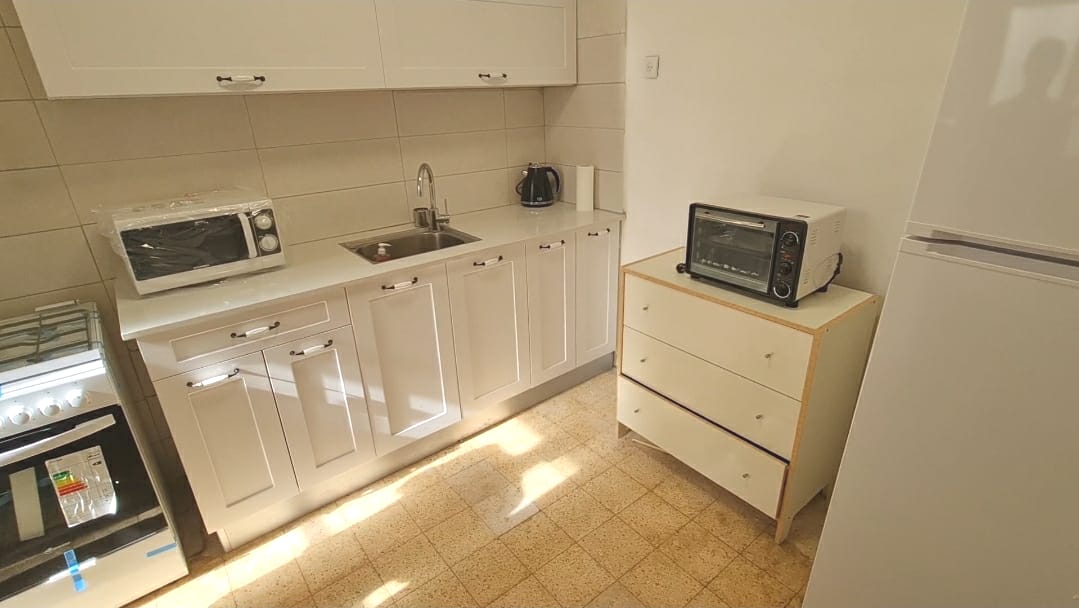
"Everyone does this completely voluntarily," he emphasizes. "And if people make financial donations, we use them solely for purchasing raw materials, so we can renovate the apartments to a higher standard. It's amazing and touching to see how people are so willing to help, especially now, after we've emerged from the COVID-19 lockdowns, and everyone has their workload and obligations. Volunteers who joined us don't quit, and they keep coming regularly. Sometimes they come after a full workday and continue until midnight, or get up at four in the morning to do renovations before heading to work. There are such good people along the way, and it's amazing."
Lelush notes that alongside the many volunteers, there are constant requests from more elderly people living in terrible conditions. "We've renovated one apartment after another, and today - about a year and a half after we started the project, we have almost forty renovated apartments behind us."
How do you decide which apartments to renovate, how do you select the most urgent cases?
"Most of the requests come from welfare departments or from good citizens who care about their neighbors and report the harsh conditions they live in. Sometimes various organizations that assist with things like food aid contact us when they find these horrific living conditions in the homes of the elderly. Sometimes there are extreme cases where there's no need for evaluation, it's immediately clear that help is urgently needed. That's how it was when we were summoned to renovate the apartment of an 80-year-old man whose home had burned down to the ground, and he simply had nowhere to live. He had no family or financial support, and he sat on a bench outside his burned home all day."
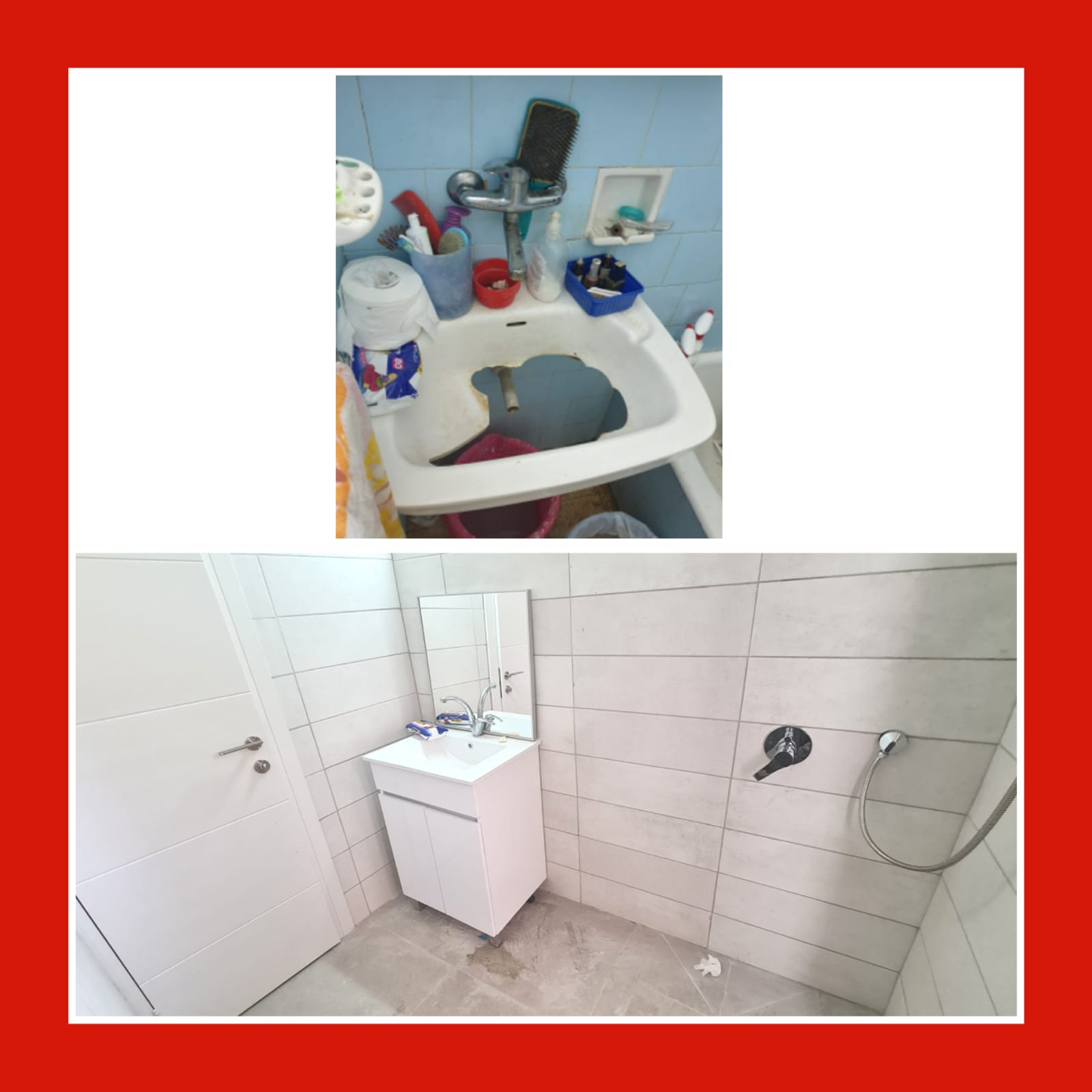
Living in Substandard Conditions
In another case, Lelush mentions renovating an elderly woman's apartment that was in a state of complete decay. "When we arrived, we were told that many professionals had been called to the apartment previously, ones who were even paid, but they were so appalled by the state of the home that no one agreed to take responsibility and renovate it. Once we heard this, we decided to take on the project and do it for the poor woman so she could live in a decent way. Our simplicity and lack of experience gave us the strength to persevere, and in the end, we delivered a beautiful home for her."
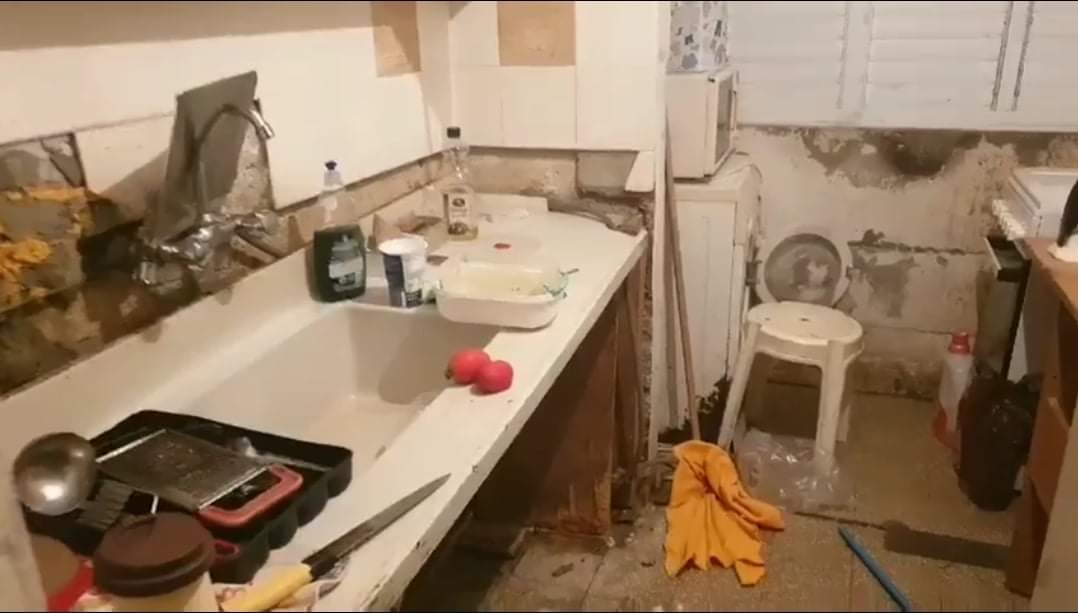
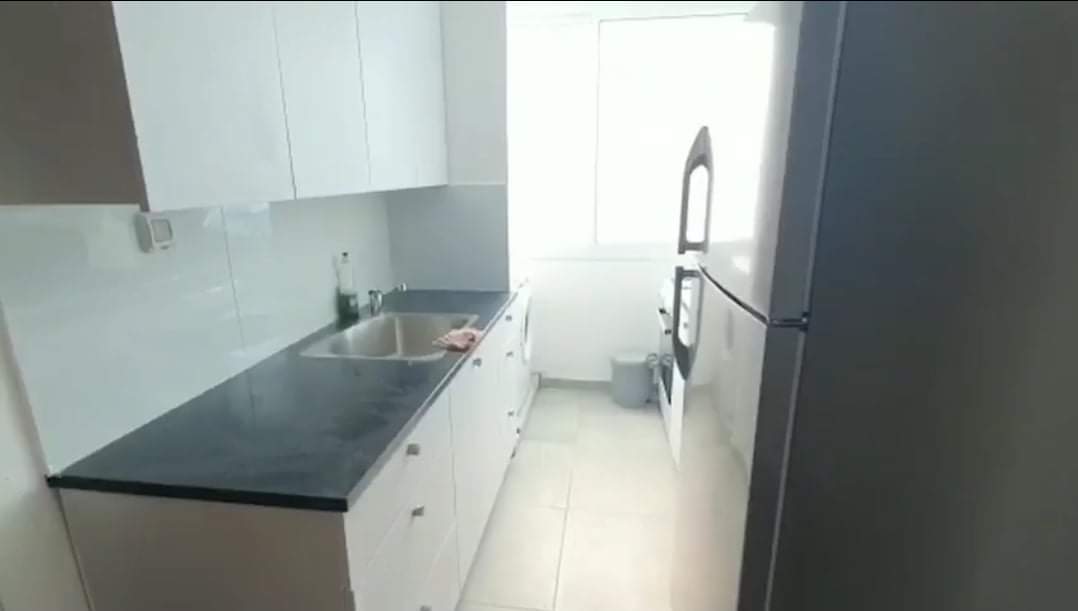
And there's a particularly touching story that happened recently. "We were asked to renovate the apartment of a 90-year-old Holocaust survivor living in Tel Aviv," says Lelush. "He's a very famous person, practically a walking cultural legend. I think he was one of the most well-known people in Israel during the 60s and 70s. Unfortunately today, he lives in substandard conditions and is confined to a wheelchair. When we arrived at his home, we were sadly greeted by a broken and peeled environment, with walls full of mold, water bugs, and various crawlers. It's terrifying to think how someone who was such a respected figure could let this happen. It only proves how great the need is, and just how anyone might sadly find themselves in such dire situations. One doesn't need to be extremely poor or without means to end up in these circumstances. Other factors can lead to this too."
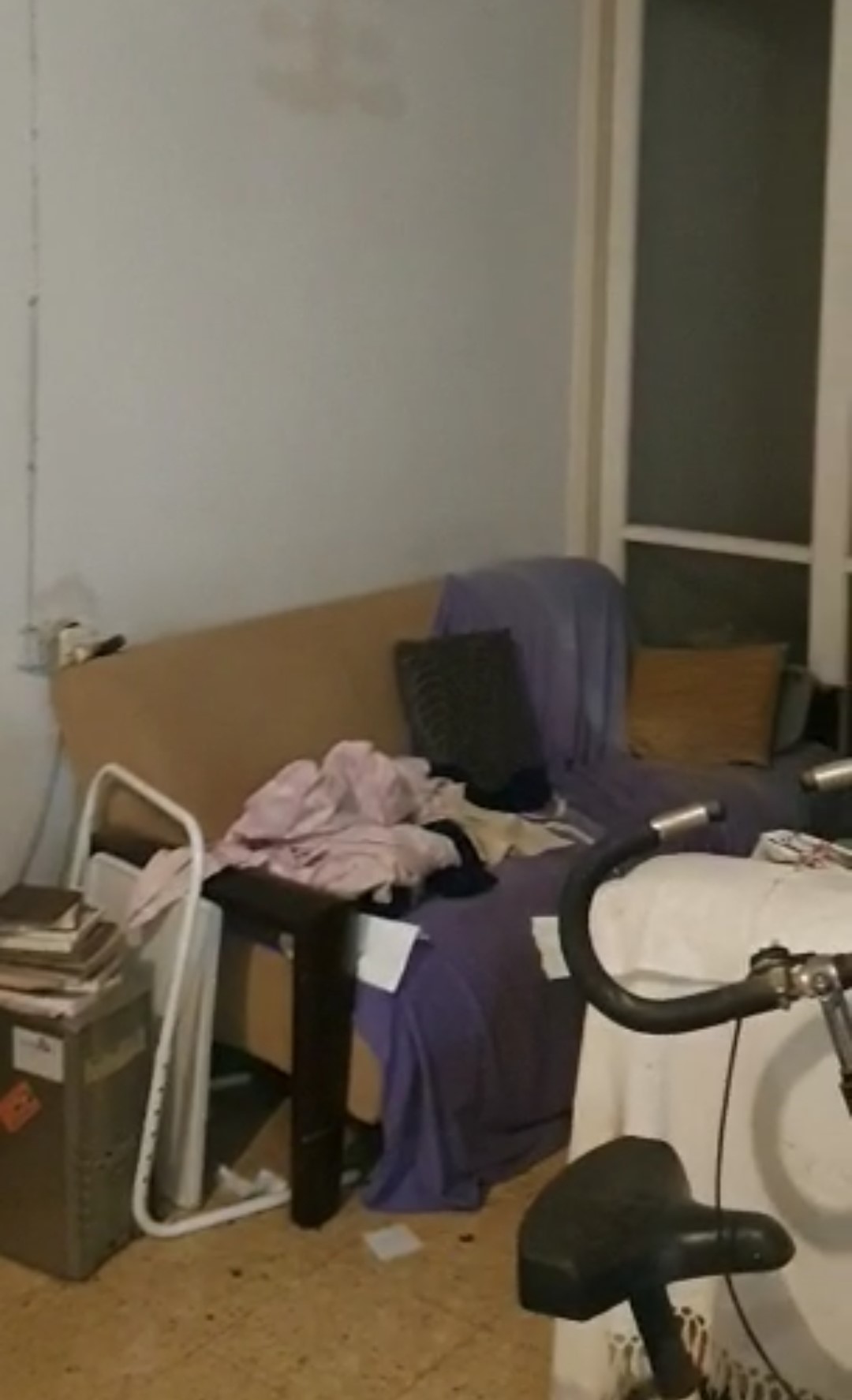
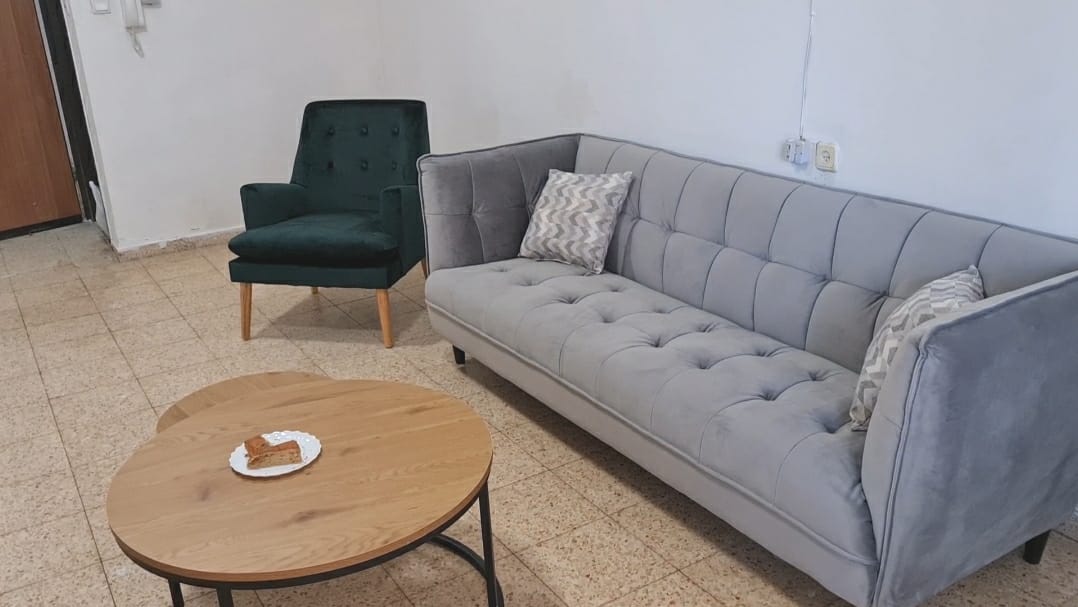
In conclusion, Lelush notes: "My friends and I have really gotten hooked on renovations, but the more I get to know elderly people and Holocaust survivors, the more I see that renovating homes isn't the only thing they need. These are very lonely people, and sometimes just having folks come over, talk to them, and show interest gives them so much and literally breathes life into them. So, while not everyone can take time to renovate houses, nearly everyone knows an older neighbor or family member who craves attention and interest. Just visiting and asking how they're doing can brighten their day and make a real difference."

